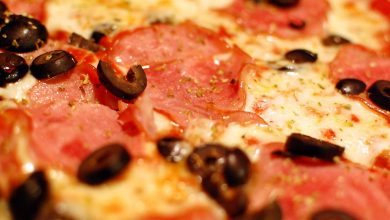What You Don’t Know About Food Allergies

There’s nothing scarier than the unknown. Especially if you’re a parent.
When your kid gets diagnosed with a food allergy, the unknown kind of becomes your new normal. You’ve got tons of questions but there are no answers. What are the chances of cross contamination? What if I missed something on the label? What if she goes into anaphylactic shock? What if her allergy gets worse?
In the face of all that uncertainty, you’re desperate for information — a way to control the uncontrollable. But the easy answers aren’t answers at all.
Visit any online gathering of allergy parents — Facebook group, comment section of a blog, an online forum — and you’ll find a staggering amount of pseudoscience:
Stop feeding your child GMOS!
We’re doing everything we can – all organic diet at our house.
We avoid antibiotics.
Someone needs to get the word out about c-sections and food allergies!
Did you breastfeed?
We cured our daughter’s egg allergy with homeopathy.

Junk science, like junk food, gives you quick and convenient satisfaction. If only there were no Monsanto, my child might not have a deadly food allergy. If only I could remove all of the toxins from my child’s diet, I could keep my child safe. But that science is empty, worthless junk.
GMOs do not cause food allergies. Neither do c-sections. Or formula or antibiotics. Yes, the microbiome is an incredibly promising and rich new area of discovery, but the cure for food allergies isn’t Activia.
We just hate those inconvenient truths. Pesky facts that don’t fit into the story we so desperately want to hear. Like the way food allergies are on the rise in third world countries too — a little wrinkle in the hygiene hypothesis. No, every kid with a food allergy did not have a megadose of antibiotics as an infant. They weren’t all born by c-section and helicopter parents aren’t to blame.
Despite a penchant for facts, the skeptical community isn’t immune from bias. There seems to be a pervasive sentiment in the community that food allergies aren’t real at all — more like something imagined by hysterical, anxious parents who want to control every facet of their children’s lives.
We all gravitate towards the narrative we like best — whether it’s a dim view of c-sections or a belief that American parents are overly obsessed with germs. Wouldn’t it be nice if dirt were the answer? But it’s not. Right now there is still no cure — just research that holds some promise for some people.
When you spread misinformation — whether it’s a false “cure” or a myth based on your disdain for helicopter parenting — it puts real people with food allergies at real risk. Ignoring facts and clinging to the story that supports your world view is irresponsible and dangerous.
Featured image by flickr user David Goehring.




